Michigan Food Waste Roadmap: A Plan to Reduce Food Waste and Loss in Michigan by 50 Percent
Food Waste is Responsible for 11.1 Million Metric Tons of Carbon Dioxide Emissions in Michigan Per Year
Michigan disposes of 1.5 to 2 million tons of food waste through its municipal and commercial waste stream each year, the single largest source of material disposed of in the state’s landfills and waste-to-energy facilities. Food waste is responsible for an estimated 11.1 million metric tons of carbon dioxide equivalent emissions and $11.9 billion in lost revenue in the state.
There is enormous economic and environmental value lost to waste within local and regional food systems in Michigan that could be retained with efforts to promote less-wasteful, money-saving practices among farms, manufacturers, retailers, foodservice and other business and institutional stakeholders in the food system, and to retain value through reuse options, donation strategies or secondary markets.
The Michigan Food System Waste Reduction Roadmap Initiative was a stakeholder-driven process to create a strategy for the state to reduce waste and loss in the Michigan food system. A partnership between Michigan Sustainable Business Forum, Make Food Not Waste and other state and national organizations, sponsored by Michigan Department of Environment, Great Lakes and Energy (EGLE), the initiative created a plan for the state to reduce food loss and waste by half by 2030, the goal recommended in the MI Healthy Climate Plan.
With intentional investments in waste prevention strategies, the rescue and recovery of surplus food, and organics recycling, Michigan will take substantial steps toward its climate and circular economy goals, reducing total emissions by upwards of 5 million metric tons of CO2e each year and increasing the recycling rate, while creating an additional 4 billion meals.
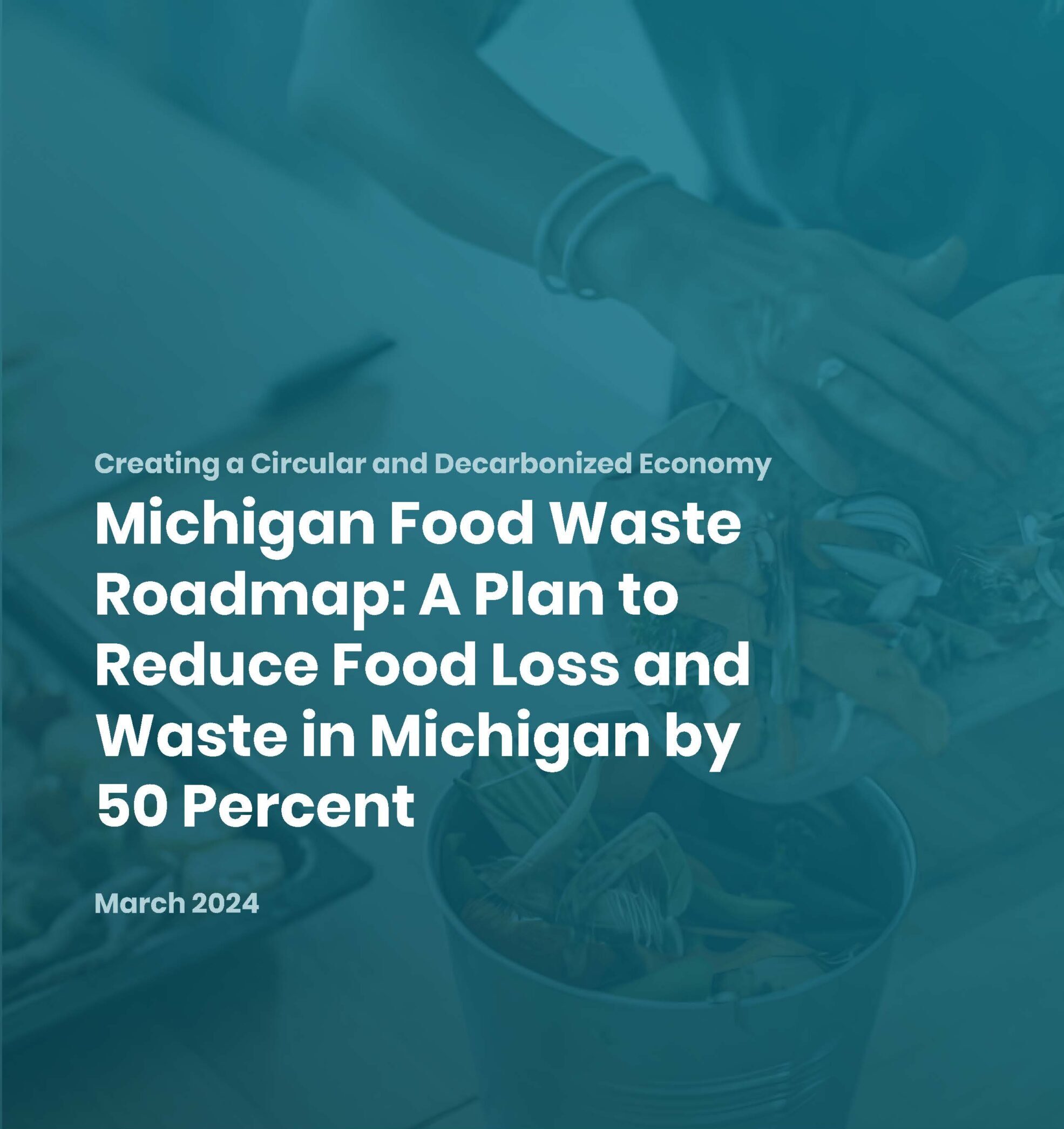
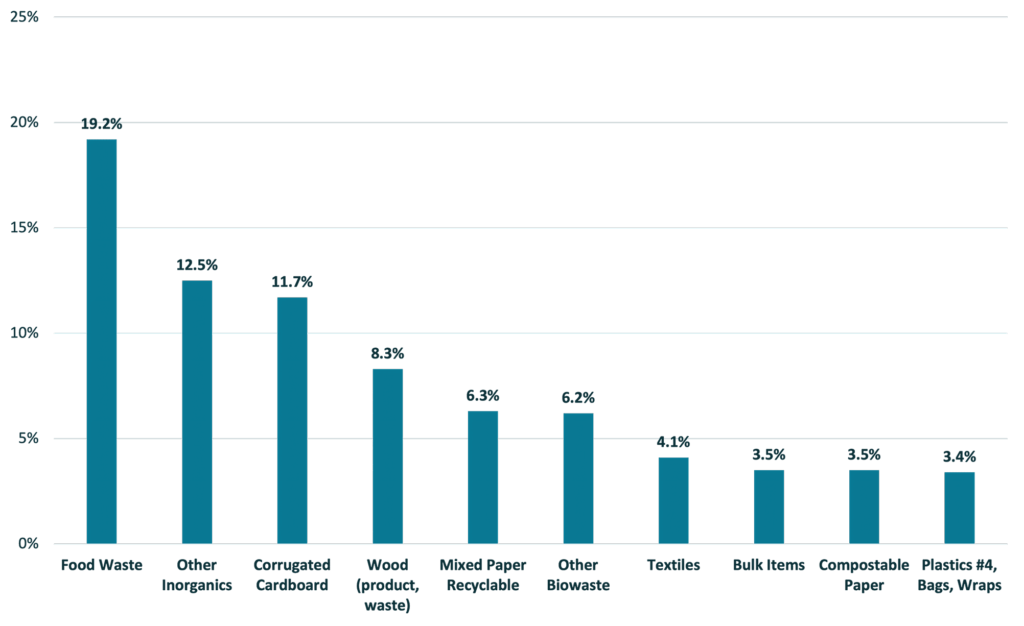
Advancing Food Loss and Waste Prevention
The Roadmap identifies barriers to the implementation of the 50 percent reduction goal and highlights potential solutions and opportunities. It outlines a pollution prevention strategy to complement the end-of-life investments the state is making through the Renew Michigan Fund and its sustainable materials management programs.
Recommendations will guide state and local policy makers on potential incentives, funding mechanisms, technical assistance, outreach, policy changes and other programs that could be developed to reduce food waste among businesses and institutions in the farming, food manufacturing, foodservice and grocery retail sectors. Further, it attempts to create a shared language for Michigan businesses, institutions and other stakeholders working to reduce food waste and loss in the state.
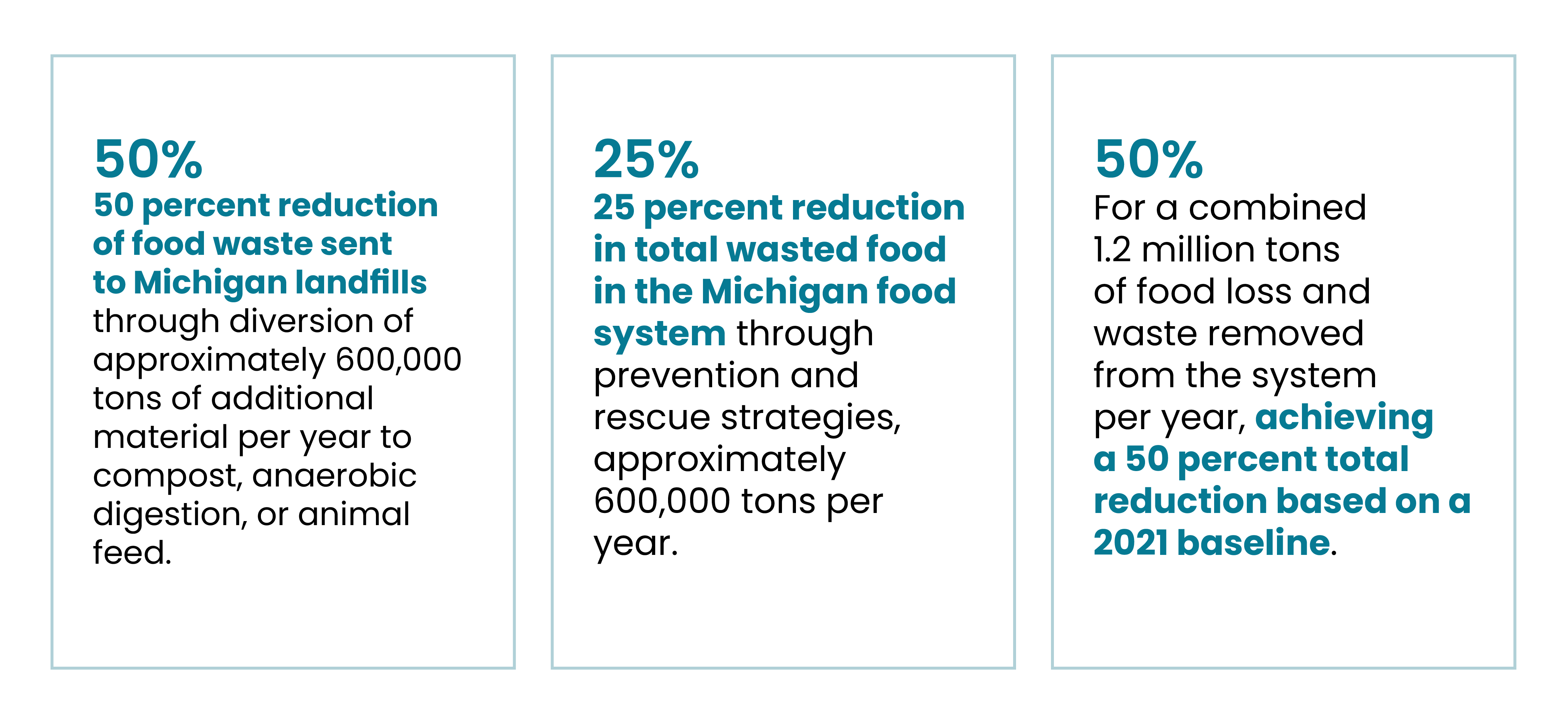
Michigan Must Act With A Sense of Urgency
Decisions are being made at this time which could impact its ability to fully invest in food loss and waste reduction, which is paramount to a robust emissions reduction strategy. With federal Inflation Reduction Act funding and MI Healthy Climate Plan leadership seeding climate planning and associated actions throughout the state, and the new Part 115 planning process mandating and funding parallel efforts to improve local and regional materials management across the state, there is
an unprecedented opportunity for communities to advance food loss and waste reduction.
Meanwhile, Michigan food businesses are also investing heavily in sustainability initiatives in response to investor pressure and consumer demand, especially climate solutions and circularity. Michigan should be prepared to support those efforts. Further, Michigan has an opportunity to take a leadership role in food loss and waste reduction among Great Lakes states.
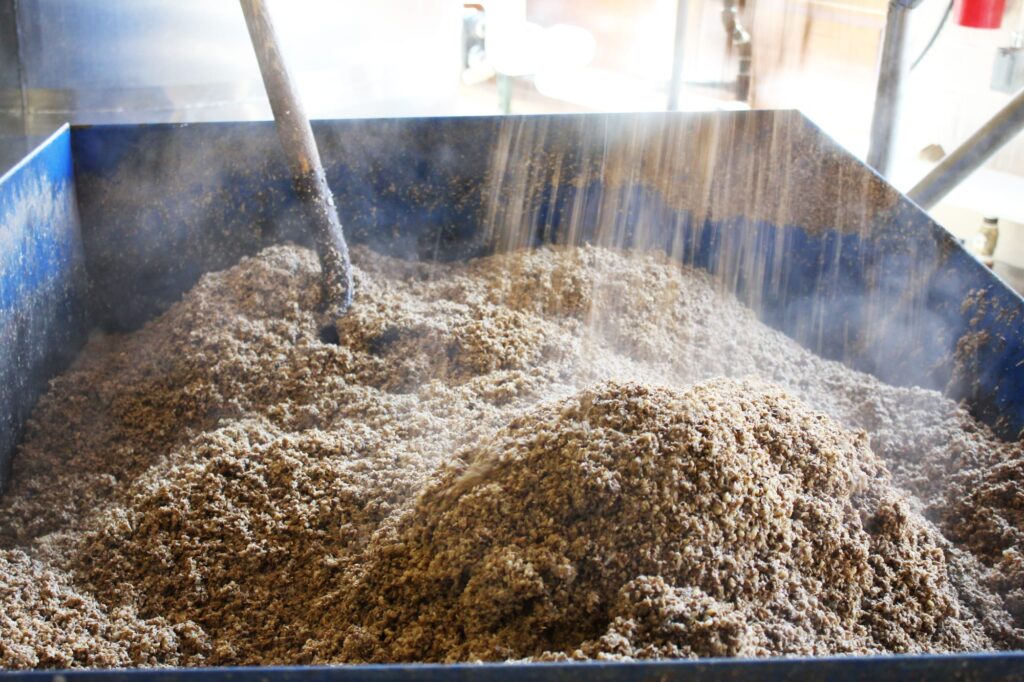
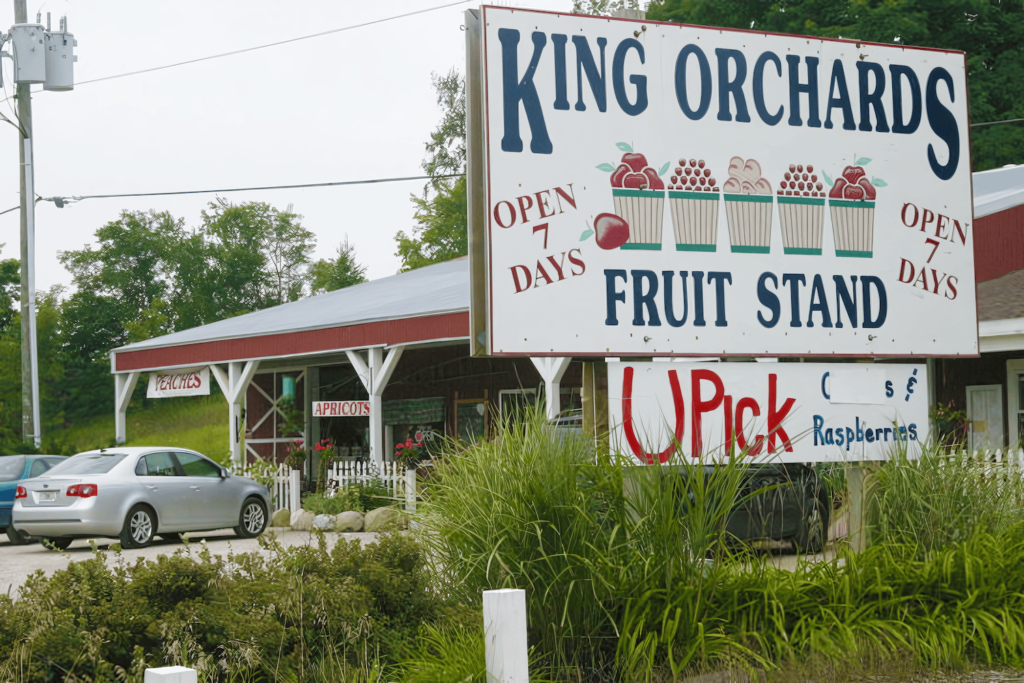
Reducing food loss is an economic opportunity for Michigan’s farms and food manufacturers
Approximately a billion dollars of economic value is lost each year to Michigan’s farms and food manufacturers as unharvested food, shrinkage, or other inefficiencies in the supply chain.
Farms are burdened with unpredictable market conditions, increasingly common extreme weather events, demanding quality expectations, and shortages in processing capacity, storage, or labor. Food processors and manufacturers are missing opportunities to optimize production or create new revenue streams.
Michigan can make farms more productive and profitable by investing in food loss and waste reduction, protecting its agricultural heritage while improving environmental outcomes: Development of imperfect and surplus produce channels, optimized market data and technology, and infrastructure for processing and storage.
Through its food manufacturers, Michigan could further position itself as a national leader on climate by championing food loss and waste prevention through industry innovation.
Food Rescue Must Double
To keep pace with the 50% reduction goal, the amount of donated food in the charitable food system must double, while not distracting from efforts to address root causes of food insecurity. The charitable food system, also known as the “emergency food” or hunger-relief sector, serves an important role. The food banks and agencies that ensure Michigan residents have access to essential nutrition need food sources, and rescue of surplus food (or upcycling of food byproducts) is a meaningful supply source.
If Michigan were to divert just five percent of its food waste to the 4,653 hunger-relief agencies and programs served by its food banks, it would overwhelm its current distribution network, more than doubling the amount of food by pound that was distributed during the most recent year for which data is available. For rescue strategies to have a meaningful impact, capacity to receive and distribute donated food must double or triple over the next decade.
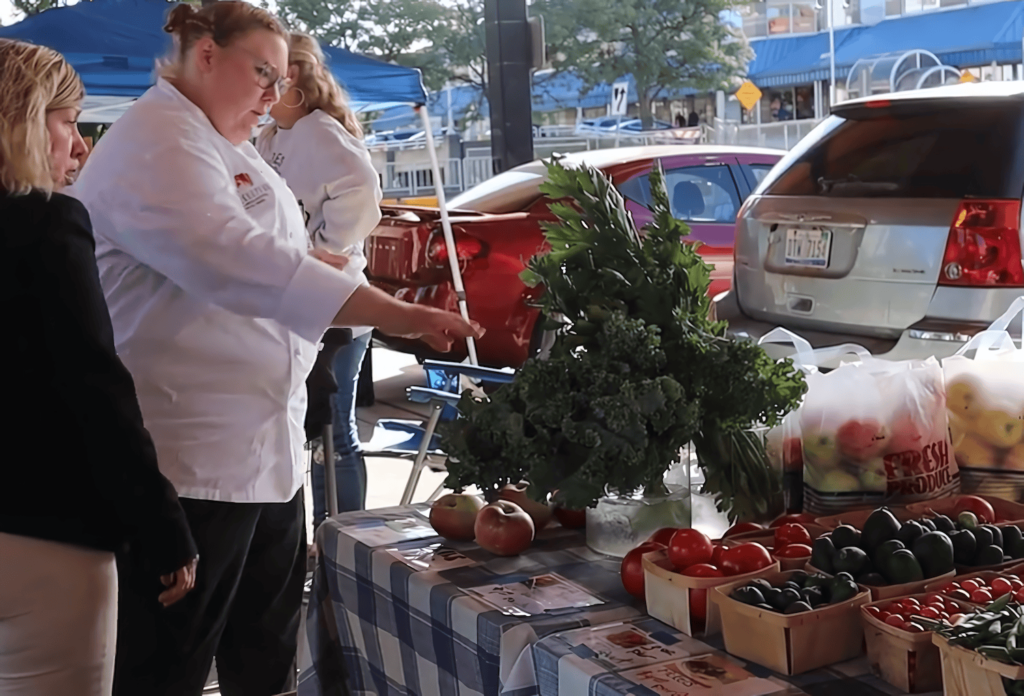
Check Back for Updates
The project team is working to advance the Roadmap recommendations and priority solutions:
- Michigan Sustainable Business Forum is launching a network to coordinate statewide efforts of businesses and institutions to reduce food loss and waste, deliver technical assistance, and advocate for improved public policy, while supporting new applications for regenerative agriculture and sustainable food systems that will create a favorable environmental for food loss and waste reduction.
- Make Food Not Waste has launched its 2030 District project in Southeast Michigan, which seeks to reduce food waste through campaigns targeting the region’s 15-largest cities.
- A coalition is forming to support food rescue in the state.
- EGLE has several programs and resources available.
To become involved, contact Rose Spickler (rspickler@misbf.org), Daniel Schoonmaker (dschoonmaker@wmsbf.org or 616.308.4761), or Danielle Todd (danielle@makefoodnotwaste.org).
